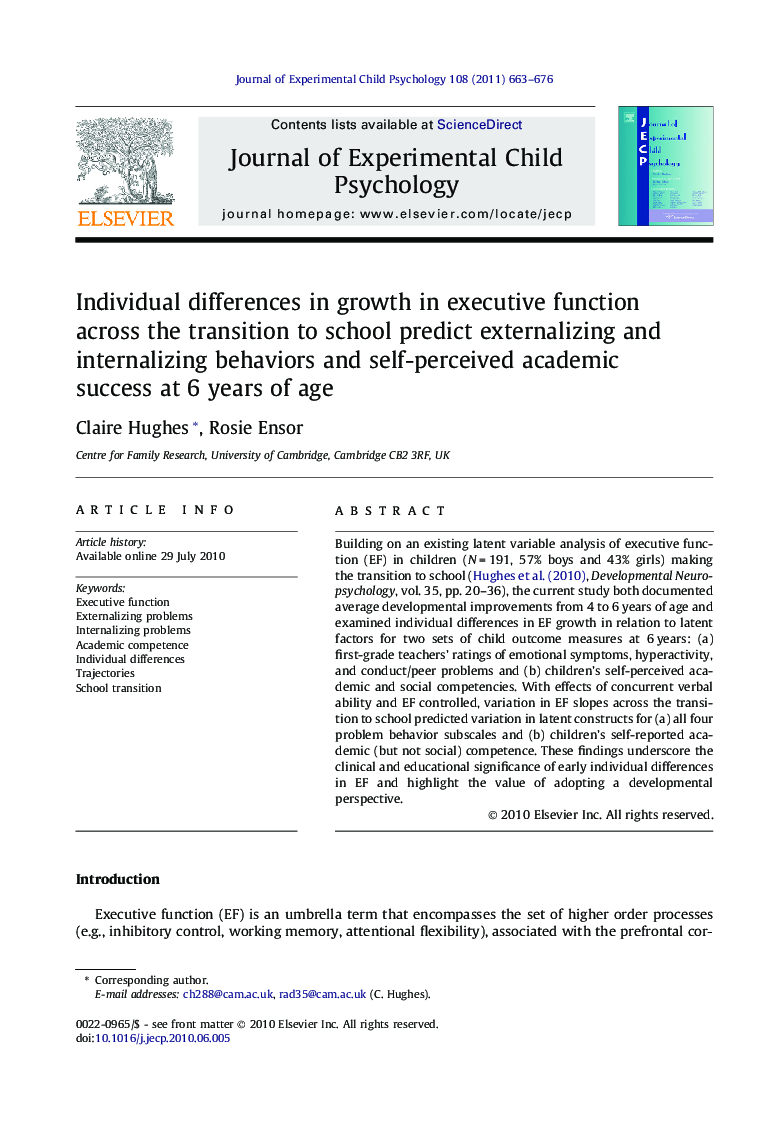| Article ID | Journal | Published Year | Pages | File Type |
|---|---|---|---|---|
| 918451 | Journal of Experimental Child Psychology | 2011 | 14 Pages |
Building on an existing latent variable analysis of executive function (EF) in children (N = 191, 57% boys and 43% girls) making the transition to school (Hughes et al. (2010), Developmental Neuropsychology, vol. 35, pp. 20–36), the current study both documented average developmental improvements from 4 to 6 years of age and examined individual differences in EF growth in relation to latent factors for two sets of child outcome measures at 6 years: (a) first-grade teachers’ ratings of emotional symptoms, hyperactivity, and conduct/peer problems and (b) children’s self-perceived academic and social competencies. With effects of concurrent verbal ability and EF controlled, variation in EF slopes across the transition to school predicted variation in latent constructs for (a) all four problem behavior subscales and (b) children’s self-reported academic (but not social) competence. These findings underscore the clinical and educational significance of early individual differences in EF and highlight the value of adopting a developmental perspective.
